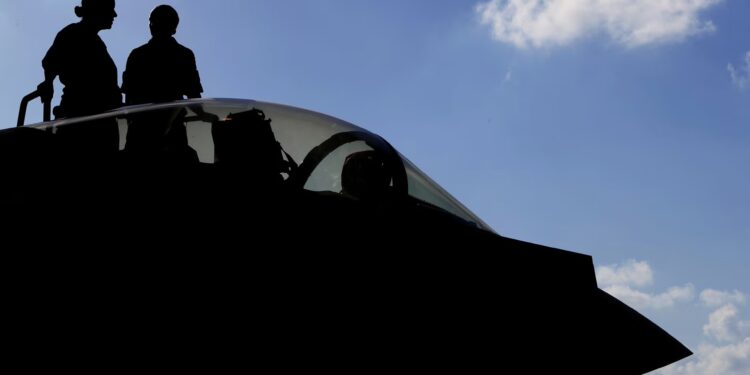The British government has deployed fighter jets to the eastern Mediterranean amid rising tensions between Israel and Iran, as Labour leader Sir Keir Starmer declined to rule out direct UK support for Israel in the event of full-scale regional conflict. The move comes as Western allies brace for further escalation following Israel’s latest airstrikes on Iranian military sites.
Defence Secretary Grant Shapps confirmed on Sunday that a squadron of RAF Typhoon jets had been repositioned to bases in Cyprus “to ensure rapid response capabilities and protect regional stability.” Though officials stressed the deployment was precautionary, the message was unambiguous: Britain is preparing for the possibility of deeper involvement should the Middle East crisis intensify.
Speaking on a Sunday political programme, Sir Keir Starmer was asked directly whether he would support British military involvement to defend Israel. He replied, “We stand firmly with Israel’s right to defend itself, and any decisions would be made in close coordination with our allies and based on the national interest.” When pressed again on whether he would authorise military action, he refused to give a definitive yes or no.
Starmer’s comments have drawn scrutiny from across the political spectrum, with critics accusing him of ambiguity at a time when clarity is needed. Some Conservative MPs welcomed his show of solidarity with Israel, while anti-war campaigners and several Labour backbenchers voiced concern that the UK could be dragged into a widening Middle East war.
Foreign Secretary David Lammy, also speaking on Sunday, said the UK would “continue to work diplomatically to de-escalate tensions” but added that “all options are on the table” should British interests or allies come under direct threat. He did not rule out further military deployments or support for US-led operations.
The developments come against the backdrop of increasing volatility in the region, as Iran vows to retaliate for the Israeli strikes and pro-Iranian militias mobilise across Syria, Iraq and Lebanon. The US has already moved additional naval assets into the Gulf, and France is reportedly considering reinforcing its own presence in the region.
Markets have reacted nervously to the mounting tensions. Oil prices climbed sharply and defence-related stocks in London and Frankfurt surged on Monday morning. Analysts warn that even limited Western involvement could spark broader conflict and undermine efforts to contain inflation and economic instability in Europe.
In Westminster, the political calculus is becoming more fraught. Starmer, who is widely expected to lead Labour to power in the next general election, must balance his desire to present a credible foreign policy stance with the deeply divided opinions within his party on matters of war and peace. His refusal to commit to or reject military involvement has fuelled debate over Labour’s evolving stance on global security.
As the situation unfolds, Britain’s role in the Middle East crisis appears poised to expand — whether through active defence posturing, diplomatic pressure, or alliance coordination. With RAF jets now within striking distance of potential flashpoints, and political leaders carefully choosing their words, the UK is edging closer to the centre of a conflict with global implications.
hewshub finance



Recent Comments